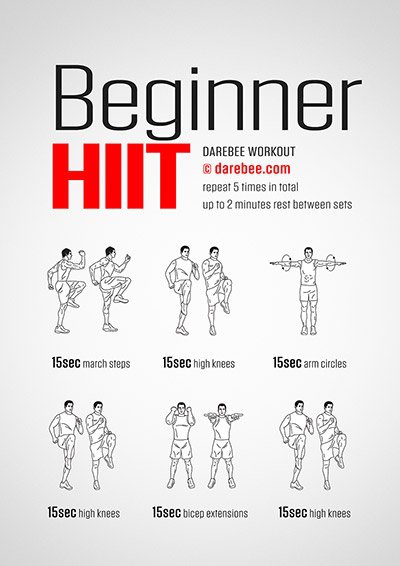
Your workout routine should be changed every six to 8 weeks to reach your fitness objectives. This allows your body to adapt to the changes. This can be accomplished through varying intensity, duration, and set composition. It also helps to keep track of your progress.
Changing intensity
To avoid monotony, you should change your routine at least once a month. You'll likely skip your workouts or give up if you become bored. Tracking your progress can be done by keeping a training diary. You may notice a slowing in your progress and need to adjust your routine.
An average rule of thumb says that you should train for 3-4 weeks. But, this can vary depending on how long and what your goals are. If you aren't seeing results with your workout, you can always make changes to it.
Changing duration
There are many reasons you might want to change your routine. People often change their routines when they feel bored or uncertain of something. But too many variations can be detrimental to your progress. It can also slow you and hinder your ability to achieve your fitness goals. There are some guidelines you can follow.

Although there is no single answer to this question, a general rule of thumb is that you should switch up your workout routine every three or four weeks. Or whenever you feel stuck. People find that if they change their workouts often, they see better results. Changing routines also keeps you mentally fresh and helps avoid boredom.
FAQ
Do I need to eat before going to the gym?
No. No. You might be hungry after a workout, so you may want to snack on fruit or yogurt.
Why is physical exercise important?
For our health, physical fitness is vital. To maintain our strength, flexibility and weight, as well as our cardiovascular system, we must exercise regularly. Exercise is also good for our sleep, stress reduction, self-esteem and energy throughout the day.
What is exercise good for?
Exercising helps you lose weight, build muscle mass, increase energy levels, reduce stress, and improve sleep quality. You will experience improved moods and self-esteem as well as increased productivity and a lower risk of developing heart disease.
Which is more important: Exercise, diet, or sleep?
Your goals will dictate the answer. If you want to lose weight, diet is the most important factor. However, if you want to gain muscle mass, then exercise is the most important factor for building muscles. The last factor is sleep, which only impacts how well you perform during your day.
What Are Cardio Exercises?
Cardiovascular exercises are ones that make your heart and lungs work harder. Swimming, cycling, rowing, and jogging are all examples. These activities help you burn fat and increase your metabolism. These activities can help you keep fit and strengthen your heart.
Exercise can I make my body gain weight?
Not at all. Actually, exercising can help you to maintain your current weight. Exercise regularly will build muscles and increase metabolism. You'll burn more calories per day if you do. This means that you won't store so much fat.
What does caffeine do to my sleep?
Caffeine influences how quickly and how well you fall asleep. Caffeine causes drowsiness, which makes falling asleep easier. But caffeine keeps you awake longer, making it harder to fall asleep again. You should not drink energy drinks or coffee right before bed.
Statistics
- According to the Centers for Disease Control and Prevention, chronic diseases cause 7 out of 10 deaths in the U.S., and treating chronic diseases accounts for 86% of U.S. healthcare costs. (mana.md)
- Physical activity confers the following maternal and fetal health benefits: a decreased risk of pre-eclampsia, gestational hypertension, gestational diabetes (for example, 30% reduction in risk) (who.int)
- Globally, 28% of adults aged 18 and over were not active enough in 2016 (men 23% and women 32%). (who.int)
- In 2018, the World Health Assembly agreed on a global target to reduce physical inactivity by 15% by 2030 and align with the Sustainable Development Goals. (who.int)
External Links
How To
How to motivate yourself for a healthy fitness routine
A fitness program is a collection of exercises that you do regularly over a period of time. It can help people tone and build muscle. Regular physical activity improves cardiovascular health and reduces blood pressure, cholesterol levels, risk of heart disease and stroke, diabetes, depression, anxiety, stress, obesity, osteoporosis, and many other diseases. Exercise provides psychological benefits like self-esteem and confidence, mood, energy levels, sleep quality, and social interaction.
Why do you want to follow your own fitness routine?
You should consider a fitness regimen if you are looking to lose weight, get healthier, and be more fit. But why should you follow one? Let's find it out!
What does it actually mean to do a workout?
It's about engaging in at least three physical activities per week. This does not mean that you need to exercise for hours. A mere 30 minute session can help burn calories and keep the body fit. You must stick to your plan. Don't be discouraged if you don't make it through a certain day. You can always start over the next time.
What time should I devote to my exercise routine?
The time it takes depends on how busy and active you are. An average workout takes 20-30 mins. For those who are just getting started with exercise, you might start slow, starting with five to ten minute increments. Gradually increase the time until you feel comfortable.